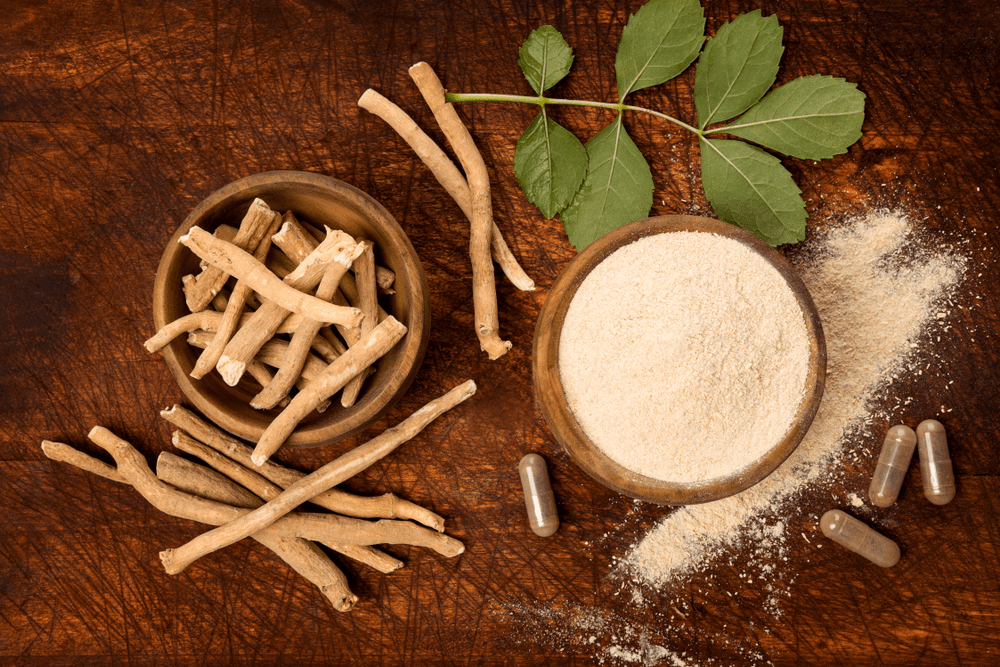Here are five ways Ashwagandha can benefit you.
You don’t need to be able to pronounce Ashwagandha to include Ashwagandha in your diet for its health benefits. People in India have used this root in traditional medicine for thousands of years. (1)
Ashwagandha is an adaptogen, which means that it helps your body cope with stress. In a world where people praise you for productivity and scorn you for taking time to rest, it’s difficult to schedule time to unwind. Long working hours and not enough downtime has led to America becoming one of the most overworked and stressed nations in the developed world. (2)
Your diet makes a big difference in how your body handles stress. If you minimize processed foods from your diet and prioritize natural foods that are high in antioxidants and other micronutrients, you give your body the raw material that it needs to handle stress.
Your first priority may be to eat a healthy diet, but once you get the basics of your nutrition down, you may want to consider adding adaptogen supplements like Ashwagandha to your diet.
Here are five reasons why adding Ashwagandha can benefit you.
1. Ashwagandha Reduces Your Stress Hormone Cortisol
Your adrenal glands secrete the hormone called cortisol in response to both physical and mental stress. Cortisol is the hormone responsible for your fight or flight instincts that helped prehistoric people escape from threats like being chased by wild animals. Unfortunately, these days, cortisol usually does people more harm than good.
When cortisol levels stay elevated over time, it can lead to stress, weight gain, trouble sleeping, occasional headaches, and digestive discomfort. (3)
Modern research on Ashwagandha supports that it can help decrease cortisol levels in people who are stressed.
A double-blind study published in Medicine in 2008 examined the effect of Ashwagandha extract on people who had reported feeling stressed. (4) The researchers gave participants either 125mg, 250mg, or 500mg per day.
After 60 days, cortisol levels decreased by 14.5% in participants given 125mg/day, 24.2% in participants given 250mg/day, and 30.5% in participants who took 500mg/day.
2. Ashwagandha May Boost Testosterone in Men and Women
You probably know testosterone is the hormone that gives men their masculine traits like large amounts of muscle and body hair. However, women need testosterone, too. Testosterone has the same general effects in women as men including increasing muscle, sex drive, and optimal bone density.
Men produce testosterone in their testes and women produce a small amount of testosterone in their ovaries. Stress causes your cortisol levels to rise. When cortisol is high, testosterone levels depress.
Side Effects of low testosterone include the following: (5)
- Fatigue
- Increased body fat
- Decreased muscle mass
- Suboptimal bone density
- Low libido
- Difficulty sleeping
- Irritability
Many testosterone boosting supplements include Ashwagandha in their formulas because of its stress-relieving benefits. If cortisol levels go down, testosterone levels should increase.
Is there any research to support Ashwagandha’s testosterone boosting effects? The research that has been published so far looks promising.
One study published by the Journal of the International Society of Sports Nutrition looked at the effect of Ashwagandha versus a placebo in untrained men. (6)
The researchers found that over the eight-week study, the men who took Ashwagandha had significantly higher levels of testosterone compared to the placebo group. They also increased their bench press by about 20kg more than the men who didn’t take Ashwagandha.
3. Ashwagandha May Improve Your Insulin Sensitivity
Cortisol’s primary function is to make sure you have energy available to escape an existential threat. How does it do this? By breaking down stored energy in your body in the form of protein, fat, and sugar. If your cortisol remains chronically high, so does your blood sugar.
When your blood sugar remains elevated, your body produces more insulin to clear the sugar from your blood. If insulin levels remain chronically high, your body's optimal blood sugar levels and metabolism could be affected. (7) Ashwagandha consumption support optimal blood sugar levels by helping to reduce your cortisol and supporting healthy insulin levels. (8)
4. Ashwagandha May Improve Your Immune System
It’s no secret that when you’re stressed your immune system could be impacted. When you’re chronically stressed, your body isn’t able to optimally regenerate and strengthen the immune system. Ashwagandha is thought to support your immune function by enhancing the natural activity of the so called "natural killer cells" within your immune system. (9)
5. Taking Ashwagandha May Improve Your Mood
Everybody has felt stressed at some point in their lives. However, some people become stressed easier than others.
If you’re prone to stress, taking an Ashwagandha supplement may help you relax. A 2012 study found that when people with chronic stress took 300mg of Ashwagandha extract daily for 60 days, they had reduced stress, worry, and a 27.9% drop in their cortisol. (10) (11)
BalanceGenics' Superfood Adaptogens Complex (Ashwagandha): More Energy, Less Stress.
QUICK DISCLAIMER
Ashwagandha has research to support it as a stress-reliever. However, what works for somebody else might not work for you. This content is for informational and educational purposes only. It is not intended to provide medical advice or to take the place of medical advice or treatment from a personal physician. Readers of this content are advised to consult their doctors or qualified health professionals regarding specific health questions. Neither the author(s) nor the publisher of this content take responsibility for possible health consequences of any person or persons reading or following the information in this educational content. All readers of this content, especially those taking prescription or over-the-counter medications, should consult their physicians before beginning any nutrition, supplement or lifestyle program.
Sources
4. Deshpande A, Irani N, Balakrishnan R. Study protocol and rationale for a prospective, randomized, double-blind, placebo-controlled study to evaluate the effects of Ashwagandha (Withania somnifera) extract on nonrestorative sleep. Medicine. 2018;97(26). doi:10.1097/md.0000000000011299.





